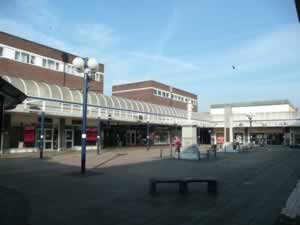Winsford
Located in the north western County of Cheshire, Winsford is a town that lies on the River Weaver. The town is split by the river into the district known as Wharton which lies on the eastern side of the river and that of Over which lies on the western side of the river.

The Winsford area first really became of note in the times of Henry III and Edward I. The courts of these kings would sometimes be held near the current town in Darnhall. Edward I created the Vale Royal Abbey in Darnhall but later had it moved in the 1270s. A few years later a Royal Charter gave permission to build a new town around the new location of the abbey with a market. This is the real beginning of Winsford as we know it.
The fortunes of Winsford took a turn for the better in the early 1700s when the government gave the townspeople the chance to modify the river so that barges could come into the town from Liverpool. At this point the town was the only place nearby that could take on the china clay barges that were destined for use in the Staffordshire Potteries so this made a significant contribution to the industry and economy of the town. Winsford was also a hub for the distribution of the salt that was produced in this area of Cheshire.

Over the years the china clay industry declined in the area as the building of the Trent and Mersey Canal meant that goods could be transported to the Potteries without needing to go through Winsford. The town at this point, however, picked up in terms of its salt trade a few decades later. The area was lacking a reliable salt source in the early 1800s and a source was found in the town. This allowed Winsford to boost its economy by building a number of salt factories along the banks of the river.
By the late 1800s Winsford was the biggest salt producer in the country. Salt production was a major part of the local economy until the Second World War when the industry declined somewhat. However the largest rock salt mine in the country is still located in the town and commercial mining still takes place here to this day. In the 1960s and 1970s Winsford was given New Town status which saw a boom in new industries, services and housing.
Visitors to Winsford are usually recommended to visit the town’s St Chad’s Church. The town also has a historically interesting monument known as the Stone Cross. This used to be used for locking up criminals and drunks in the town centre. Nature lovers should also make time to visit the Winsford Flashes which are a series of three lakes that follow the River Weaver.
Links:
